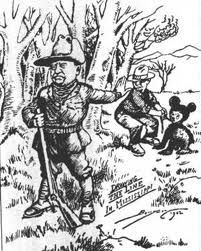 On this day in 2006, the last Mobile Army Surgical Hospital (MASH) is decommissioned by the United States Army. The Mobile Army Surgical Hospital (MASH) refers to a United States Army medical unit serving as a fully functional hospital in a combat area of operations. The units were first established in August 1945, and were deployed during the Korean War and later conflicts.
On this day in 2006, the last Mobile Army Surgical Hospital (MASH) is decommissioned by the United States Army. The Mobile Army Surgical Hospital (MASH) refers to a United States Army medical unit serving as a fully functional hospital in a combat area of operations. The units were first established in August 1945, and were deployed during the Korean War and later conflicts.
The MASH unit was conceived by Michael E. DeBakey and other surgical consultants as the “mobile army surgical hospital.” Col. Harry A. Ferguson, the executive officer of the Tokyo Army Hospital, also aided in the establishment of the MASH program. It was an alternative to the system of portable surgical hospitals, field hospitals, and general hospitals used during World War II. It was designed to get experienced personnel closer to the front, so that the wounded could be treated sooner and with greater success. Casualties were first treated at the point of injury through buddy aid, then routed through a battalion aid station for emergency stabilizing surgery, and finally routed to the MASH for the most extensive treatment. This proved to be highly successful; it was noted that during the Korean War, a seriously wounded soldier that made it to a MASH unit alive had a 97% chance of survival once he received treatment.
The MASH unit made its way into popular culture through the 1968 novel M*A*S*H by Richard Hooker, the 1970 feature film based on the novel, and the long-running television sitcom (1972-1983) based on the movie. A 1953 film, Battle Circus, also took place at a MASH.
MASH units continued to serve in various conflicts including the Vietnam War. In October 1990 the 5th MASH, 44th Medical Brigade, XVIIIth AirBorne Corps, Fort Bragg, North Carolina, deployed to Saudi Arabia and was the first fully functional Army Hospital in country. This unit moved forward six times, always as the first up hospital for the region. In March 1991 the 5th MASH was operationally attached to the 24th Infantry Division to provide forward surgical care (often right on the front battle lines) to the combat units that attacked the western flank of Iraqi Army. In March 1991, the 159th MASH of the Louisiana Army National Guard operated in Iraq in support of the 3rd Armored Division during Operation Desert Storm.
In 1997, the last MASH unit in South Korea was deactivated. A deactivating ceremony was held in South Korea, which was attended by several members of the cast of the M*A*S*H television series, including Larry Linville (who played Frank Burns), and David Ogden Stiers, (who played Charles Winchester). MASH units have since been replaced by the U.S. Army’s Combat Support Hospitals.
 Worldwide, the last MASH unit was deactivated on October 16, 2006. The 212th MASH – based in Miesau Ammo Depot, Germany – was the first U.S. Army hospital established in Iraq in 2003, supporting coalition forces during Operation Iraqi Freedom. It was the most decorated combat hospital in the U.S. Army, with 28 Campaign streamers on the organizational colors. The 212th MASH’s last deployment was to Pakistan to support the 2005 Kashmir earthquake relief operations. The U.S. State Department bought the MASH’s tents and medical equipment, owned by the DoD, and donated the entire hospital to the Pakistani military, a donation worth $4.5 million.
Worldwide, the last MASH unit was deactivated on October 16, 2006. The 212th MASH – based in Miesau Ammo Depot, Germany – was the first U.S. Army hospital established in Iraq in 2003, supporting coalition forces during Operation Iraqi Freedom. It was the most decorated combat hospital in the U.S. Army, with 28 Campaign streamers on the organizational colors. The 212th MASH’s last deployment was to Pakistan to support the 2005 Kashmir earthquake relief operations. The U.S. State Department bought the MASH’s tents and medical equipment, owned by the DoD, and donated the entire hospital to the Pakistani military, a donation worth $4.5 million.
The 212th MASH’s unit sign now resides at the Army Medical Department’s Museum in San Antonio, Texas.
MASH in M*A*S*H
Out of necessity, the “4077th MASH” unit depicted in the television series was considerably smaller than many of the MASH units deployed by the United States in the Korean War. In the series, about four surgeons depicted as being assigned to the unit, the administrative staff consists of the C.O. and his assistant, and few soldiers were shown to be present. By comparison, the 8063rd Mobile Army Surgical Hospital had personnel including twelve nurses, eighty-nine enlisted soldiers of assorted medical and non-medical specialties, one Medical Service Corps (MSC) officer, one Warrant Officer and ten other commissioned officers of assorted specialties. On one occasion, the unit handled over 600 casualties in a 24 hour period.
On this day in 1885, Mark Twain publishes his famous, and famously controversial, novel The Adventures of Huckleberry Finn.


 On this day in 2006, the last
On this day in 2006, the last  Worldwide, the last MASH unit was deactivated on October 16, 2006. The
Worldwide, the last MASH unit was deactivated on October 16, 2006. The 
 Welcome to the Stars Hollow Gazette‘s
Welcome to the Stars Hollow Gazette‘s 
Recent Comments